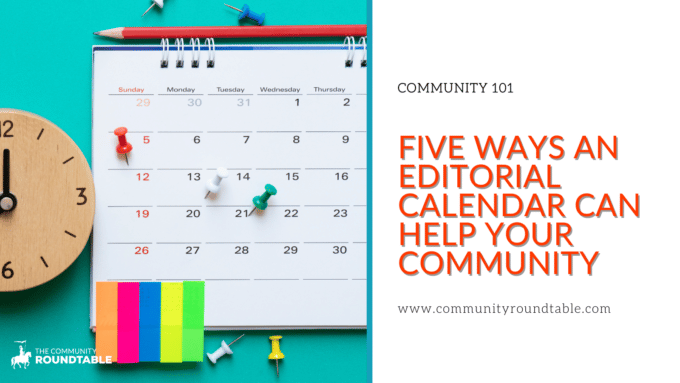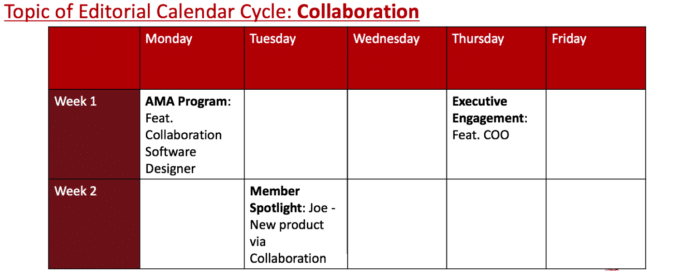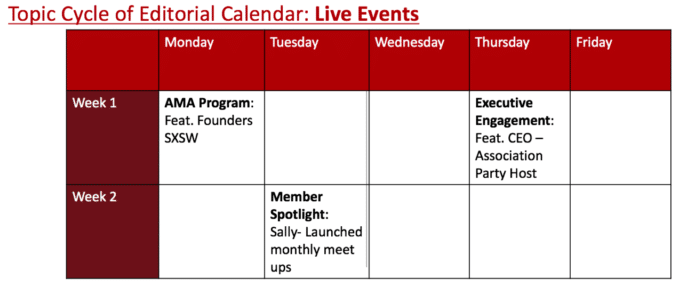
One of the most common questions we get from members is, “How do I increase the value and the volume of member engagement?” This challenge persists across all community types, sizes, and use cases. One way we’ve found to increase audience engagement, in terms of both quality and quantity, is to implement an editorial calendar for your community programming.
Five Ways an Editorial Calendar Can Help Your Community
1 – The basics
An editorial calendar helps you organize and create context for the content in your community – a repeating, time-specific template for member content and programs. A typical community editorial calendar consists of two major components: A time period during which specific forms of content or programs repeat, and a topical focus that may shift.


2 – How editorial calendars help community managers
Most communities have a lot of content. It can be tough for members to find their way. An editorial calendar does the hard work for them.
An editorial calendar allows you to channel fresh streams of content into regularly recurring programmatic anchors that your members know how to navigate. This creates familiarity and comfort for your members, which increases long-term engagement.
Editorial calendars also boost efficiency for your community team – even if that’s just you. Because the program design remains the same, a community manager can spend more time creating and curating the content.
3 – Editorial calendars = stability + freshness
An editorial calendar formally introduces a cyclical timeframe into your community program. Now, they know what to expect and when to expect it. Since the topic of each cycle shifts and different collaborators are used, you can create a space for fresh content without confusion. Consider the success of widespread reoccurring events – like the popular Throwback Thursday (#tbt) on social media.
4 -Don’t need to reinvent the wheel
By maintaining the same time and program structure in each editorial cycle, you don’t have to create fresh content plans each week. Use the pre-designed program template to insert relevant new or evergreen content. Then you can focus on the value of the content itself.
5 – Create listening and response channels
By implementing this structure, the behavior of catering to passing member interests you can easily incorporate timely content. The shifting topic cycle encourages community managers to act on community listening and plug in what members are asking for without disrupting the entire framework. Implementing this system might seem like a lot of work. However, editorial calendars actually free up your time, in the long run, to provide better content to your members.
Want more ideas? Check out these best practices for building an editorial calendar for your online community program.
